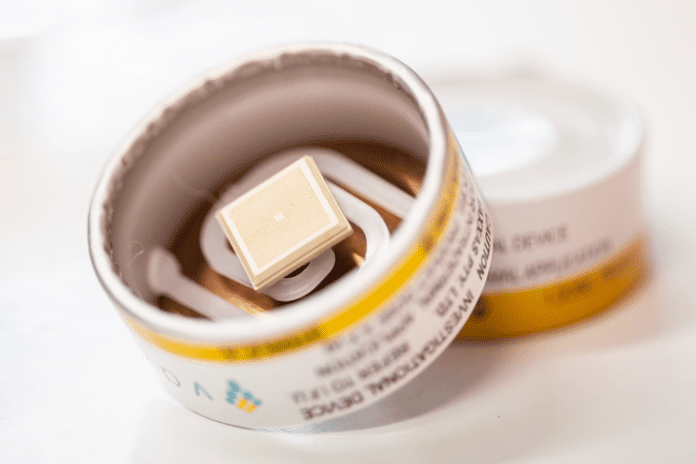
A COVID vaccine patch could be more effective than the traditional needle vaccine at fighting COVID variants.
An emerging study by the University of Queensland has found that a COVID vaccine patch could fight COVID variants, such as Omicron and Delta, then a needle vaccine. The COVID-19 pandemic has led to an increasing surge in vaccine innovation. The pandemic powered the development of various effective vaccines to tackle the infection and testing their efficiency in record time. Now, the latest invention by University of Queensland researchers could revolutionise the future of treating viral infections.
The research has been published in Vaccine.
A gamechanging COVID vaccine patch
The research was conducted in partnership with Brisbane biotechnology company Vaxxas to test the Hexapro SARS-CoV-2 spike vaccine using the Vaxxas high-density microarray patch (HD-MAP) technology.
The results in mice found that the COVID vaccine patch was more effective at neutralising COVID-19 variants in comparison to needle-based vaccines.
UQ’s Dr Christopher McMillan said the vaccine patch appeared to counteract new variants more effectively than the current SARs-CoV-2 vaccine delivered by injection.
“The high-density microarray patch is a vaccine delivery platform that precisely delivers the vaccine into the layers of the skin which are rich in immune cells,” Dr McMillan said.
“We found that vaccination via a patch was approximately 11 times more effective at combatting the Omicron variant when compared with the same vaccine administered via a needle.”
Mutating viruses and vaccine effectiveness
The researchers found that the results extended further than just the Hexapro vaccine. “So far, every vaccine type we have tested through the patch, including subunit, DNA, inactivated virus and conjugate produce superior immune responses compared to traditional needle vaccination methods,” Dr McMillan said.
Furthermore, the researchers noted that available vaccines can quickly become ineffective due to emerging variants of COVID-19. Innovations such as the COVID vaccine patch can mitigate evolving COVID-19 strains.
“This decreased effectiveness was highlighted by the Omicron variant, which contains over 30 mutations in the spike protein,” commented UQ’s Dr David Muller.
“A number of mutations have given the virus the ability to evade the immune responses generated by the current vaccines. However, the patch technology has the potential to offer a new – and more effective – weapon in our arsenal at a time where new variants are mutating at a rapid rate.
“The COVID vaccine patches are not only more effective against emerging variants but are far easier to administer than needle-based vaccines. But, it is important to stress that existing vaccines are still an effective way of combatting serious illness and disease from this virus, and it is not the time to drop our guard.”
Vaxxas CEO David Hoey noted that the COVID vaccine patch research provides clear evidence that this technology could have a profound effect in tackling future health emergencies.
“We are continuing to scale up our manufacturing capabilities and accelerate product development in preparation for large-scale clinical trials,” he said.
“This includes the construction of our first manufacturing facility in Brisbane to support the transition to commercialising of our HD-MAP vaccine candidates, including a Hexapro COVID-19 patch.”










